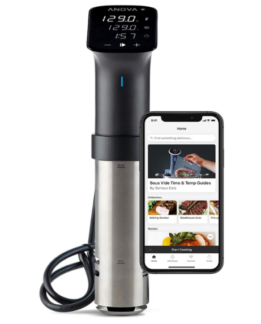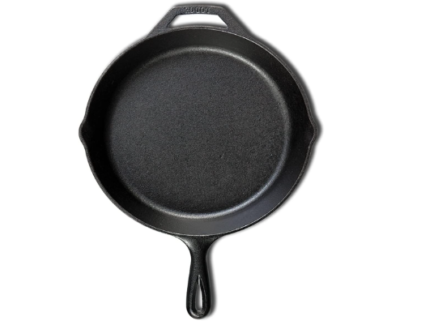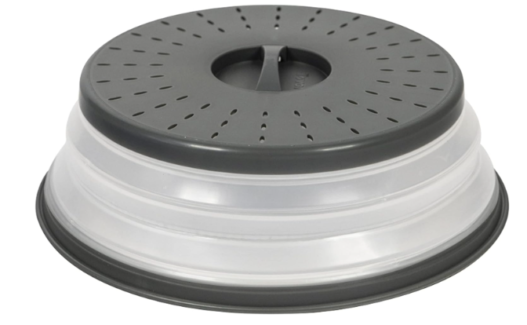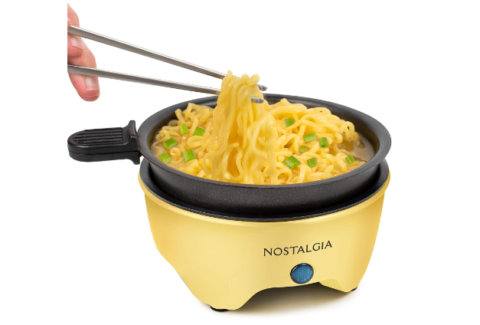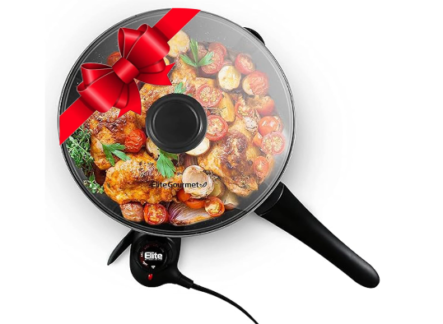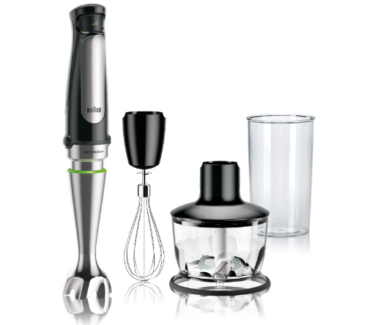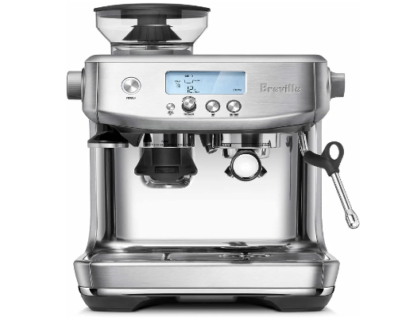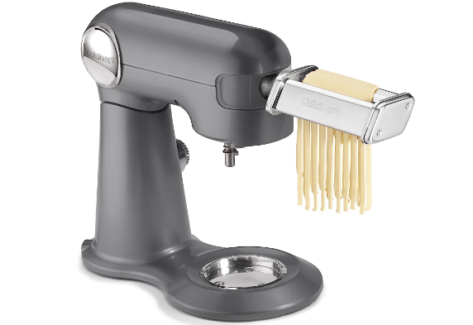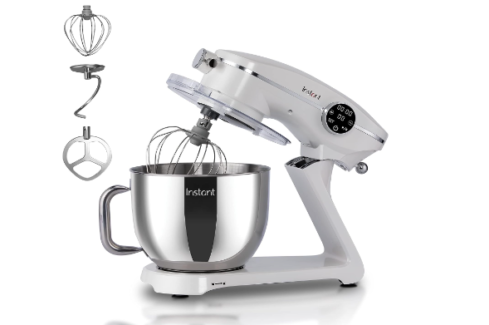In the city of Sakai, the ancient art of making...
Read MoreGerman knives are renowned for their high-quality craftsmanship and precision. They are widely considered to be some of the best knives in the world, and have been trusted by professional chefs and home cooks alike for centuries. German knives are typically made with high-quality materials, such as high-carbon stainless steel, and are designed to be both durable and easy to use.
Some of the most popular German knife brands include Wusthof, Zwilling J.A. Henckels, and Messermeister. Whether you are looking for a chef’s knife, a boning knife, or a carving knife, you can find a high-quality German knife that is sure to meet your needs.
What are the best German knives?
There are many high-quality German knife brands and models to choose from, each with their own unique features and benefits. Here are some of the best German knives:
- Wusthof Classic: The Wusthof Classic line is one of the most popular and widely recognized German knife brands. Made with high-carbon stainless steel, these knives are known for their durability and sharpness.
- Zwilling J.A. Henckels Pro: Zwilling J.A. Henckels is another well-known German knife brand. Their Pro line features a curved bolster for a comfortable grip and precision control.
- Messermeister Meridian Elite: The Messermeister Meridian Elite line is a high-quality, handcrafted German knife line made with German steel. The blades are precision-forged and have a full tang for durability.
- F. Dick Premier Plus: F. Dick is a German brand that has been producing knives for over 200 years. Their Premier Plus line features a unique design that is both stylish and functional.
- Wusthof Grand Prix II: The Wusthof Grand Prix II line features a unique design with a pebble-textured handle for a comfortable grip. The blades are made with high-carbon stainless steel and are precision-forged for durability.
- Mercer Culinary Genesis: While not strictly a German brand, Mercer Culinary’s Genesis line is inspired by German knife-making techniques. These knives are made with high-carbon stainless steel and are known for their sharpness and precision.
Ultimately, the best German knife for you will depend on your personal preferences and needs. Consider factors such as blade size, handle shape, and overall design when choosing a German knife that is right for you.
Are German made knives the best?
German-made knives are highly regarded for their quality, durability, and precision. German knife brands such as Wusthof, Zwilling J.A. Henckels, and Messermeister are known for their craftsmanship, attention to detail, and use of high-quality materials such as high-carbon stainless steel.
German knives are often heavier and more substantial than other types of knives, which can make them more comfortable to use for extended periods. They are also known for their balance and versatility, making them suitable for a wide range of kitchen tasks.
However, whether or not German-made knives are the “best” is subjective and dependent on personal preferences. There are many other high-quality knife brands from around the world, each with their own unique features and benefits. Ultimately, the best knife for you will depend on your individual needs, preferences, and budget.
What is the best knife brand in Germany?
Germany is home to many high-quality knife brands, each with their own unique features and benefits. It is difficult to determine the best knife brand in Germany as it ultimately depends on individual preferences and needs. However, some of the most popular and reputable German knife brands include:
- Wusthof: Wusthof is a family-owned business that has been producing knives in Solingen, Germany, for over 200 years. They are known for their high-quality craftsmanship, durability, and sharpness.
- Zwilling J.A. Henckels: Zwilling J.A. Henckels is a well-known German knife brand that has been producing knives since 1731. They are known for their precision, balance, and versatility.
- Messermeister: Messermeister is a German knife brand that is known for its high-quality, handcrafted knives. They are made with German steel and are precision-forged for durability and sharpness.
- F. Dick: F. Dick is a German knife brand that has been producing knives for over 200 years. They are known for their quality craftsmanship and innovative designs.
- Boker: Boker is a German knife brand that has been producing knives since 1869. They are known for their high-quality materials, innovative designs, and attention to detail.
Ultimately, the best German knife brand for you will depend on your personal preferences and needs. Consider factors such as blade size, handle shape, and overall design when choosing a German knife brand that is right for you.
Who makes best quality knives in world?
There are many knife manufacturers around the world that produce high-quality knives, and determining the “best” is subjective and dependent on personal preferences. However, here are some of the most well-regarded and reputable knife brands that are known for producing high-quality knives:
- Japanese knife brands: Japan is well-known for producing some of the best knives in the world. Japanese knives are often made with high-quality steel, are incredibly sharp, and feature unique designs. Popular Japanese knife brands include Shun, Global, and Miyabi.
- German knife brands: German knives are known for their durability, sharpness, and precision. German knife brands such as Wusthof, Zwilling J.A. Henckels, and Messermeister are well-regarded for their quality craftsmanship and innovative designs.
- French knife brands: French knife brands such as Sabatier and Thiers-Issard are known for their high-quality craftsmanship and unique designs.
- American knife brands: American knife brands such as Benchmade, Spyderco, and Buck are known for their quality craftsmanship and innovative designs.
Ultimately, the best knife brand for you will depend on your personal preferences, needs, and budget. It is important to do research, read reviews, and try out different knives before making a purchase to ensure you find a knife that works well for you.
Should I buy German or Japanese knives?
Deciding whether to buy German or Japanese knives depends on your personal preferences, needs, and budget.
German knives are known for their durability, precision, and heavy weight, making them well-suited for heavy-duty tasks such as cutting through thick meat and bones. They typically have thicker blades and are more substantial in weight, which can be a benefit for some users.
Japanese knives, on the other hand, are known for their sharpness, lightweight construction, and delicate design. They are typically thinner and lighter than German knives, making them well-suited for precise, delicate cuts such as slicing raw fish.
In terms of price, both German and Japanese knives can be expensive due to their quality materials and craftsmanship. However, Japanese knives tend to be more expensive overall due to the use of high-quality steel and the intricate craftsmanship required to make them.
Ultimately, the choice between German and Japanese knives comes down to personal preference and intended use. If you’re looking for a knife for heavy-duty tasks and prefer a heavier weight, German knives may be a better choice. If you need a knife for precise, delicate cuts and prefer a lighter weight, Japanese knives may be a better choice.
Do chefs prefer Japanese or German knives?
Both Japanese and German knives are popular among chefs, and the choice often comes down to personal preference and the type of cuisine they are preparing.
Many chefs prefer Japanese knives for their sharpness and lightweight construction, which allows for precise cuts and reduces fatigue during long periods of use. Japanese knives are also well-suited for preparing raw fish and other delicate ingredients common in Japanese cuisine.
German knives, on the other hand, are known for their durability and versatility, making them well-suited for a wide range of kitchen tasks. They are often heavier and more substantial than Japanese knives, which can make them more comfortable for some chefs to use for extended periods.
Ultimately, the choice between Japanese and German knives depends on personal preference, the type of cuisine being prepared, and the individual needs of the chef. Some chefs may prefer a combination of both types of knives to ensure they have the right tool for each task.
What is better German or Japanese steel?
Both German and Japanese steel are known for their high quality and excellent performance in knives, but they have some differences.
German steel typically has a higher carbon content, which gives it strength and durability, as well as resistance to staining and corrosion. It is often used in heavy-duty knives, such as those designed for chopping meat and bones.
Japanese steel, on the other hand, is known for its high levels of purity and fine-grained texture, which allows it to be sharpened to a very fine edge. This makes it well-suited for precise, delicate cuts, such as those needed for sushi and sashimi.
In terms of which is better, it really depends on the individual needs and preferences of the user. Both German and Japanese steel can be excellent choices for a high-quality knife, and both have their own unique benefits and drawbacks. Ultimately, the best steel for a knife will depend on the intended use of the knife and the preferences of the user.
What is pros and cons of German knives?
Here are some pros and cons of German knives:
Pros:
- Durability: German knives are known for their strength and durability, making them well-suited for heavy-duty tasks such as cutting through thick meat and bones.
- Versatility: German knives are designed to be versatile and can handle a wide range of tasks in the kitchen, from chopping and slicing to mincing and dicing.
- Comfort: The weight and balance of German knives are often well-balanced and comfortable to use for extended periods of time.
Cons:
- Weight: German knives are often heavier than other types of knives, which can be a drawback for some users who prefer a lighter weight knife.
- Thick blades: German knives typically have thicker blades than other types of knives, which can make them less suitable for delicate tasks such as filleting fish or slicing raw vegetables thinly.
- Price: German knives can be expensive due to their high quality and craftsmanship, which may be a drawback for users on a budget.
Ultimately, the pros and cons of German knives will depend on the needs and preferences of the user. For heavy-duty tasks and versatility, German knives can be an excellent choice, but they may not be the best option for those who require a lightweight or delicate knife.
How do you use German knives?
Here are some general tips for using German knives:
- Hold the knife properly: Grip the handle firmly with your dominant hand, with your fingers wrapped around the handle and your thumb on top. Use your other hand to hold the item you are cutting steady.
- Use a cutting board: Place a cutting board on a stable surface and position the item you are cutting on top of it. This will provide a stable surface for cutting and prevent damage to your countertop or table.
- Use the right technique: Use a rocking motion to cut through thicker items such as meat, and a chopping motion for denser vegetables such as onions or carrots. For slicing softer items like tomatoes, use a gentle sawing motion to avoid crushing the flesh.
- Keep the blade sharp: German knives are designed to be durable, but they still require sharpening from time to time to maintain their edge. Use a honing steel or sharpening stone to keep your knife sharp and ready for use.
- Clean and store properly: After use, clean your knife with soap and water and dry thoroughly to prevent rust. Store the knife in a block or on a magnetic strip to protect the blade and prevent accidents.
Remember to always use caution when handling a knife, and never leave a knife unattended or within reach of children.
Factors to consider when choosing the best German knives
Here are some factors to consider when choosing the best German knives:
- Blade: Consider the size and shape of the blade, as well as the type of steel used. Look for a blade that is sharp and sturdy enough to handle the tasks you have in mind, whether that’s slicing through meat or chopping vegetables.
- Handle: The handle of a German knife should be comfortable and ergonomic, with a good grip that won’t slip or cause fatigue over extended use. Consider the material of the handle, whether it’s wood, plastic, or another material, and choose one that feels comfortable in your hand.
- Weight and balance: German knives are often heavier than other types of knives, which can be an advantage for some users but a drawback for others. Consider the weight and balance of the knife and choose one that feels comfortable and well-balanced for your needs.
- Price: German knives can vary in price from budget-friendly to luxury options, so consider your budget when choosing a knife. While high-end knives may offer superior craftsmanship and quality, they may not be necessary for everyday use in the kitchen.
- Reputation of the brand: Consider the reputation of the brand when choosing a German knife. Look for a brand with a long history of quality and craftsmanship, with positive reviews from other users.
Ultimately, the best German knife for you will depend on your individual needs and preferences, so take the time to research and compare different options before making a purchase.
How to clean German knives
Here are the steps to properly clean German knives:
- Rinse: After use, rinse the knife with warm water to remove any food particles or debris from the blade.
- Wash: Wash the knife with a gentle dish soap and a soft sponge or brush. Avoid using harsh abrasives or steel wool as these can damage the blade.
- Dry: Thoroughly dry the knife with a soft cloth to prevent rust and corrosion. Make sure to dry the handle and any crevices or joints as well.
- Store: Store the knife in a block or on a magnetic strip to protect the blade and prevent accidents. Avoid storing the knife loose in a drawer, as this can damage the blade and pose a safety risk.
It’s important to note that German knives are often made from high-carbon steel, which is more susceptible to rust than other types of steel. To prevent rust, make sure to thoroughly dry the knife after washing, and consider applying a light coat of oil to the blade and handle to protect against moisture.
Additionally, always use caution when handling a knife, and never leave a knife unattended or within reach of children.
How to maintain German knives properly
Proper maintenance is important to ensure the longevity and performance of German knives. Here are some tips for maintaining German knives:
- Sharpening: Sharpen the knife regularly to maintain a sharp edge. You can use a sharpening stone or honing steel to sharpen the blade. It’s important to use the correct angle and technique when sharpening to avoid damaging the blade.
- Honing: Honing helps to keep the blade aligned and straight, and should be done before or after each use. Use a honing steel to gently realign the blade by holding the steel at a slight angle and running the blade along the steel.
- Storage: Store the knife in a block or on a magnetic strip to protect the blade and prevent accidents. Avoid storing the knife loose in a drawer, as this can damage the blade and pose a safety risk.
- Cleaning: Clean the knife after each use to remove any food particles or debris from the blade. Rinse the knife with warm water and gently wash with a gentle dish soap and a soft sponge or brush. Dry the knife thoroughly with a soft cloth to prevent rust and corrosion.
- Oil: Consider applying a light coat of oil to the blade and handle to protect against moisture and prevent rust. Use food-grade mineral oil or another suitable oil and apply a thin layer to the blade and handle with a soft cloth.
By following these tips, you can ensure that your German knife stays sharp, safe, and performs well for years to come.
Troubleshooting about German knives
Here are some troubleshooting tips for food processors used in making pastry:
- Dough is too dry or crumbly: If the dough is too dry, add a small amount of liquid (such as water or milk) while the food processor is running until the dough forms a ball. If the dough is too crumbly, add a small amount of flour while the food processor is running until the dough comes together.
- Dough is too wet or sticky: If the dough is too wet or sticky, add a small amount of flour while the food processor is running until the dough comes together. You may also need to refrigerate the dough for a short period of time to firm it up.
- Uneven mixing: If the dough is not mixing evenly in the food processor, stop the machine and scrape down the sides of the bowl. Continue processing until the dough is mixed evenly.
- Overheating: If the food processor is overheating, turn it off and let it cool down for several minutes before resuming use. If the problem persists, you may need to reduce the load or adjust the processing time to prevent overheating.
- Blade not rotating: If the blade is not rotating, check to see if any dough or other debris is blocking the blade. Stop the machine and remove the debris before resuming use.
- Machine not turning on: If the food processor is not turning on, check to make sure it is properly plugged in and that the safety features are engaged. If the problem persists, contact the manufacturer for assistance.
By following these troubleshooting tips, you can address common issues with food processors used in making pastry and achieve the best results possible.
Are German knives worth it?
German knives are known for their high-quality craftsmanship, precision, and durability, which make them a worthwhile investment for many home cooks and professional chefs. They are often made with high-carbon stainless steel, which is resistant to corrosion and helps the knife maintain a sharp edge over time.
In general, German knives tend to be heavier and more substantial than other types of knives, which can make them more comfortable to use for extended periods. They are also known for their balance and versatility, making them suitable for a wide range of kitchen tasks.
However, German knives are often more expensive than other types of knives, which may make them less accessible for some consumers. Additionally, the heavier weight of German knives may not be suitable for everyone, and some people may prefer lighter knives that are easier to maneuver.
Ultimately, whether or not German knives are worth the investment will depend on your personal preferences, needs, and budget. If you are looking for a high-quality, durable knife that will last for years to come and can afford to invest in one, then a German knife may be a good choice for you.
Related Posts
Best Victorinox Knife For Every Type Of Cook
Victorinox is a well-known knife company for their Swiss army...
Read MoreHow to choose the best knife set for BBQ
A knife set for BBQ typically includes a range of...
Read MoreWhy Trust Us
You will find what you are looking for at Jody's Bakery. From classic to luxury brands, you'll find both. We will help you to select appliances that fit your needs, budget and lifestyle. Whether you want to stop by to learn more — or plan to make a major purchase — we’ll treat you like family and assist you every step of the way. Shop with us today to receive friendly and experienced help along the way.









